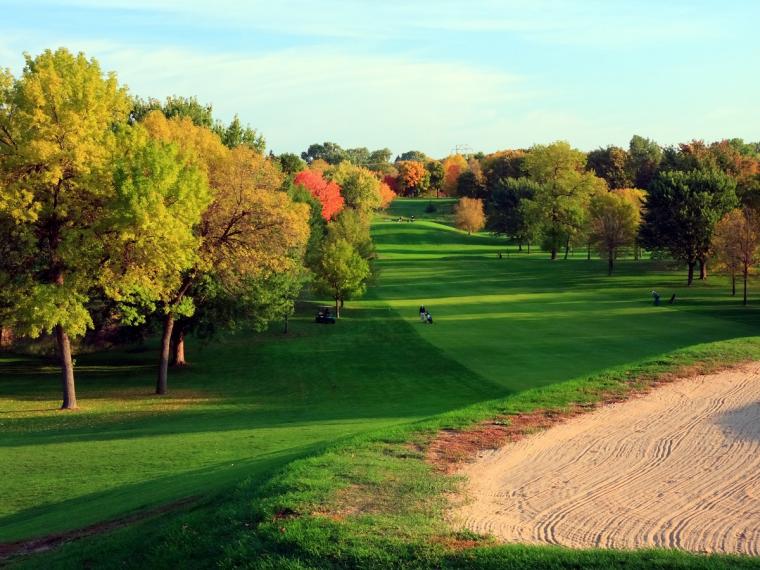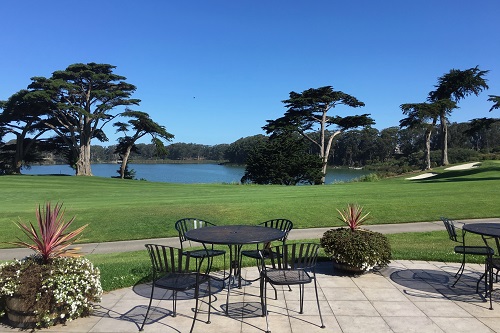
Bad news came for users of a municipal golf course in Louisville, who found out their nine-hole facility could be eliminated and turned into “diverse and active parkland” under a local conservancy’s proposal.
According to an article in GolfWeek, the Cherokee Golf Course, located in what was termed “one of the city’s most iconic parks,” has been trying to fend off proposals from Olmsted Parks Conservancy since at least 2019, when the nonprofit that supports Louisville’s 17 Olmsted-designed parks pitched a plan amid citywide budget cuts to turn Cherokee Golf Course from a “financial liability to a treasured park space.”
At the moment, local officials have not taken a stance; they are waiting for community input.

"We just want to hear from people on what they want to see Cherokee Golf Course become: Remain a golf course, or do they support the Olmsted Conservancy's plan?" Margaret Brosko, acting director of the Parks department, told reporters at the local ABC affiliate.
The course has been around for more than 125 years, making it, according to GolfWeek, the fifth-oldest public course in the country.
But the move to develop the course is not unique to Louisville. It’s part of a nationwide trend as munis struggle to survive as land developers and others offer cash-strapped cities money for courses. And courses like Cherokee, that often lack a lease agreement with a PGA professional or nonprofit organization, are increasingly finding themselves on the chopping block.
In 2020, the Reason Foundation’s Senior Policy Analyst Marc Joffe surveyed 221 local governments that reported running golf courses. Of those 221 local governments, 155 local governments lost money operating public golf courses in fiscal 2020. In the aggregate, these 155 local governments lost a total of $61 million in taxpayer money operating golf courses in the 2020 fiscal year.
Pretty grim stats. And, notes GolfPass, it gets worse: “Unfortunately, many municipalities - whether it's cities or counties, or state park or metro park systems - are at a crossroads with their courses. Many of these facilities are aging and in need of renovation and modernization. But spending millions of dollars of taxpayer money on golf is not the best way for politicians to get reelected these days.”
The pandemic did serve to fuel (and to reignite) interest in golf nationwide – one of its few redeeming qualities. Forbes recounts growth in not just 2020 but 2021 – and municipal courses got plenty of use as players blew the dust off clubs (or bought or rented clubs) and headed out. Whether this growth is going to be enough to beat back the interest of developers – who see large tracts of land in big cities as having the potential for homes, retail and restaurants – is anyone’s guess.
In some cases, cities, recognizing the impact municipal courses can have in the sports tourism world, have sunk money into them. The state of New York spent millions in the late 1990s for Rees Jones to redesign the Bethpage State Park’s Black Course, which is now hosting major championships. Houston’s Memorial Park underwent a renovation by Tom Doak and is now a fixture on the pro circuit.
And that’s not all, says GolfPass: “Atlanta has transformed the tired Bobby Jones Golf Course into a nine-hole reversible course by the late Bob Cupp. Construction of the 23,000-square-foot Murray Golf House at the Bobby Jones GC will create a shared home for the Georgia State Golf Association, the Georgia Section of the PGA of America and the Georgia Golf Hall of Fame.”
The article listed another 10 municipal courses it considered worth saving; find them here.
But even if a course does not host pro tournaments, they play an essential role in introducing children to the game, in keeping golf affordable to those who can’t afford private club memberships, and to connecting people with the outdoors.
And in some cases, cities are hitting back and preserving courses. In California, golfers breathed a huge sigh of relief when a bill proposing to convert publicly owned golf courses into affordable housing failed to pass the State Assembly’s appropriations committee in January.
It was no surprise, then, that the Southern California Golf Association was one of several major opponents of the bill, according to Craig Kessler, director of public affairs. The original bill, which was introduced in February 2021, called for circumventing CEQA, Surplus Land Act and Parks Preservation Act, which also drew the ire of the golf industry, associations and players.
“Housing is the No. 1 problem and indisputable at this point,” Kessler. “The key point for golf … it’s making the legislative finding that these are not parks. They are parks. It’s a bad bill, it’s a bad piece of public policy. It’s cheap populous political posturing that really doesn’t get at the problem it purports to solve.”
In West Palm Beach, officials approved a 50-year lease with a not-for-profit developer tied to PGA of America who will refurbish and operate the city's 179-acre West Palm Golf Park, a major step forward in the years-long effort to bring the neglected course back to life.
In many cases, cities are promoting the use of municipal golf courses by making it easy for golfers to book tee times using an app, as does the Minneapolis Parks and Recreation Board.
But survival is not always guaranteed. One of Central Florida’s oldest golf courses, Wedgewood Golf Course, has been sold to possibly make way for a 1,400-home development, according to a report in the Lakeland Ledger, part of the USA Today Network.

